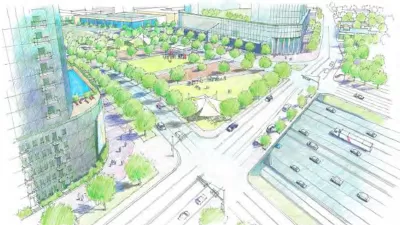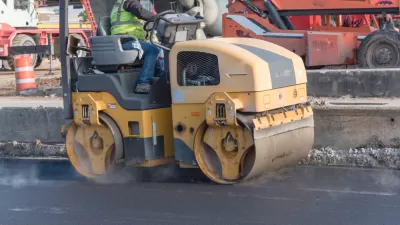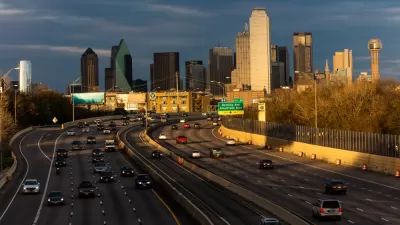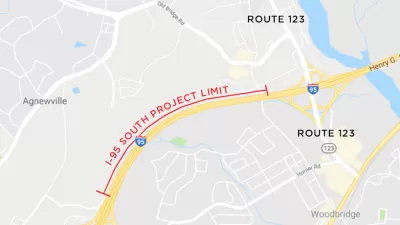The Texas Department of Transportation (TxDOT) is in the early stages of planning for two projects that could leverage plans to rebuild two freeways in the city with plan to reconnect the neighborhoods they severed.

"The Texas Department of Transportation hopes to help restitch four Dallas neighborhoods during the next two decades with massive overhauls of interstates 30 and 345," reports Nic Garcia.
For Interstate 30, TxDOT is planning to reconstruct and widen stretches of freeway located east of downtown, where the freeway cuts through the South Dallas, Fair Park, and Deep Ellum neighborhoods. TxDOT it can complete the widening and rebuilding while hopes all three neighborhoods would be more accessible to each other by depressing the freeway below grade, redoing on ramps, adding pedestrian and bike bridges, and allowing for cap parks similar to Klyde Warren Park and the Southern Gateway.
On Interstate 345, a 1.4-mile freeway that moves 180,000 cars per day and acts as a wall between the central business district and the Deep Ellum neighborhood, the possibility of removing the elevated freeway and replacing with boulevards is on the table.
"Redesigning and rebuilding both highways was born out of work TxDOT completed in 2016, known as CityMAP," according to Garcia. "The two projects — which are estimated to cost well over $1 billion — are in their infancy. Environmental studies and federal approval are still years away before the department can lay a square foot of concrete. And there is little money set aside for this work."
In a high-profile setback for the automobile infrastructure status quo, in April the U.S. Department of Transportation halted TxDOT's work on a freeway widening project on Interstate 45 in Houston. The TxDOT is also still pursuing a widening project on Interstate 10 between Austin and Houston.
FULL STORY: These two highways tore Dallas neighborhoods apart. Can the damage be fixed?

Alabama: Trump Terminates Settlements for Black Communities Harmed By Raw Sewage
Trump deemed the landmark civil rights agreement “illegal DEI and environmental justice policy.”

Study: Maui’s Plan to Convert Vacation Rentals to Long-Term Housing Could Cause Nearly $1 Billion Economic Loss
The plan would reduce visitor accommodation by 25% resulting in 1,900 jobs lost.

Why Should We Subsidize Public Transportation?
Many public transit agencies face financial stress due to rising costs, declining fare revenue, and declining subsidies. Transit advocates must provide a strong business case for increasing public transit funding.

Paris Bike Boom Leads to Steep Drop in Air Pollution
The French city’s air quality has improved dramatically in the past 20 years, coinciding with a growth in cycling.

Why Housing Costs More to Build in California Than in Texas
Hard costs like labor and materials combined with ‘soft’ costs such as permitting make building in the San Francisco Bay Area almost three times as costly as in Texas cities.

San Diego County Sees a Rise in Urban Coyotes
San Diego County experiences a rise in urban coyotes, as sightings become prevalent throughout its urban neighbourhoods and surrounding areas.
Urban Design for Planners 1: Software Tools
This six-course series explores essential urban design concepts using open source software and equips planners with the tools they need to participate fully in the urban design process.
Planning for Universal Design
Learn the tools for implementing Universal Design in planning regulations.
Smith Gee Studio
Alamo Area Metropolitan Planning Organization
City of Santa Clarita
Institute for Housing and Urban Development Studies (IHS)
City of Grandview
Harvard GSD Executive Education
Toledo-Lucas County Plan Commissions
Salt Lake City
NYU Wagner Graduate School of Public Service





























